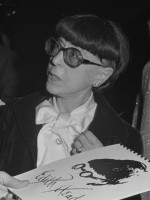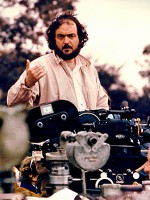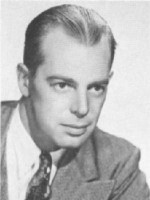Sterling Hayden is a Actor American born on 26 march 1916 at Montclair (USA)

Sterling Walter Hayden (born Sterling Relyea Walter; March 26, 1916 – May 23, 1986) was an American actor and author. For most of his career as a leading man, he specialized in westerns and film noir, such as Johnny Guitar, The Asphalt Jungle, and The Killing. Later on he became noted as a character actor for such roles as Gen. Jack D. Ripper in Dr. Strangelove or: How I Learned to Stop Worrying and Love the Bomb (1964). He also played the Irish American policeman, Captain McCluskey, in Francis Ford Coppola's The Godfather in 1972, and the novelist Roger Wade in 1973's The Long Goodbye. He played the role of Leo Dalcò in Bernardo Bertolucci's 1900 in 1976. At 6 feet 5 inches (1.96 m), he loomed over most other actors.
He was born in Montclair, New Jersey, to George and Frances Walter, who named him Sterling Relyea Walter. After his father died, he was adopted at age 9 by James Hayden and renamed Sterling Walter Hayden. Subsequently to this, he lived in coastal towns of New England, and as a child lived in New Hampshire, Massachusetts, Pennsylvania, Washington, D.C., and Maine, where he attended Wassookeag School in Dexter, Maine.
Hayden dropped out of high school at the age of 16 and took a job as mate on a schooner. His first voyage was to Newport Beach, California, from New London, Connecticut. Later, he was a fisherman on the Grand Banks of Newfoundland, ran a charter yacht, and served as a fireman on 11 trips to Cuba aboard a steamer. He skippered a trading schooner in the Caribbean after earning his master's license, and in 1937 he served as mate on a world cruise of the schooner Yankee. After serving as sailor and fireman on larger vessels and sailing around the world several times, he was awarded his first command at age 22, skippering the square rigger Florence C. Robinson 7,700 miles from Gloucester, Massachusetts, to Tahiti in 1938. Hayden spoke of his nautical experiences before the monthly meeting of the Adventurers' Club of New York on March 21, 1940.
Hollywood years and military service
Hayden became a print model and later signed a contract with Paramount Pictures, who dubbed the 6′5″ (1.96 m) actor "The Most Beautiful Man in the Movies" and "The Beautiful Blond Viking God." His first film, Virginia (1941), starred Madeleine Carroll, with whom he fell in love and married.
After two film roles, he left Hollywood and joined the U.S. Marine Corps as a private, under the name John Hamilton, a nom de guerre he never used otherwise. While at Parris Island, he was recommended for Officer Candidate School. After graduation, he was commissioned a second lieutenant and was transferred to service as an undercover agent with William J. "Wild Bill" Donovan's COI office. He remained there after it became the OSS.
As OSS agent John Hamilton, his World War II service included sailing with supplies from Italy to Yugoslav partisans and parachuting into fascist Croatia. Hayden, who also participated in the Naples–Foggia campaign and established air crew rescue teams in enemy-occupied territory, became a first lieutenant on September 13, 1944, and a captain on February 14, 1945. He received the Silver Star (for gallantry in action in the Balkans and Mediterranean; "Lt. Hamilton displayed great courage in making hazardous sea voyages in enemy-infested waters and reconnaissance through enemy-held areas"), a Bronze Arrowhead device for parachuting behind enemy lines, and a commendation from Yugoslavia's Marshal Tito. He left active duty on December 24, 1945.
His great admiration for the bravery of the Communist partisans led to a brief membership in the Communist Party. He was apparently active in supporting an effort by the Communist-controlled motion picture painters union to absorb other film industry unions. As the Red Scare deepened in U.S., he cooperated with the House Un-American Activities Committee, confessing his brief Communist ties and "naming names." His wife at that time, Betty de Noon, insisted that the names her ex-husband provided were already in the hands of the committee, which had a copy of the Communist Party's membership list. In any event, Hayden subsequently repudiated his cooperation with the committee, stating in his autobiography, "I don't think you have the foggiest notion of the contempt I have had for myself since the day I did that thing."
Personal life
Hayden often professed distaste for film acting, saying he did it mainly to pay for his ships and voyages.
In 1958, after a bitter divorce from Betty Ann de Noon, Hayden was awarded custody of his children. He defied a court order and sailed to Tahiti with all four children, Christian, Dana, Gretchen and Matthew.
The crew sailed from San Francisco Bay to Tahiti, where Hayden had planned to film a movie. Hayden also invited well-known photographer Dody Weston Thompson along to document the trip and to help shoot location choices. Her South Seas folio contains photographs of Hayden's ship, The Wanderer; on-deck photos of life aboard the ship; colorful prints of his children, Tahitian women and children; and unique artifacts on shore. The film never materialized however, according to Dody's notes, U.S. Camera and Travel printed her photographs of paradise in 1961. Marin County Superior Court Judge Harold Haley later ordered Hayden to repay Republic Pictures nearly $50,000 to recover the cost of financing the trip.
In 1960, he married Catherine Devine McConnell. They had two sons, Andrew and David, and were married until his death in 1986. McConnell also had a son (Scott McConnell) from her first marriage to Neil McConnell, an heir to Avon's founding family.
In the early 1960s, Hayden rented one of the pilot houses of the retired ferryboat Berkeley, docked in Sausalito, California, where he resided while writing his autobiography Wanderer, which was first published in 1963. In it, he reminisces about turning points in his life:
The sun beats down and you pace, you pace and you pace. Your mind flies free and you see yourself as an actor, condemned to a treadmill wherein men and women conspire to breathe life into a screenplay that allegedly depicts life as it was in the old wild West. You see yourself coming awake any one of a thousand mornings between the spring of 1954, and that of 1958—alone in a double bed in a big white house deep in suburban Sherman Oaks, not far from Hollywood.
The windows are open wide, and beyond these is the backyard swimming pool inert and green, within a picket fence. You turn and gaze at a pair of desks not far from the double bed. This is your private office, the place that shelters your fondest hopes: these desks so neat, patiently waiting for the day that never comes, the day you'll sit down at last and begin to write.
Why did you never write? Why, instead, did you grovel along, through the endless months and years, as a motion‑picture actor? What held you to it, to something you so vehemently professed to despise? Could it be that you secretly liked it—that the big dough and the big house and the high life meant more than the aura you spun for those around you to see?
Hayden's wild," they said. "He's kind of nuts—but you've got to hand it to him. He doesn't give a damn about the loot or the stardom or things like that—something to do with his seafaring, or maybe what he went through in the war . . ."
In the 1970s, after his appearance in The Godfather, he appeared several times on NBC's Tomorrow Show with Tom Snyder, where he talked about his career resurgence and how it had funded his travels and adventures around the world. Hayden bought a canal barge in the Netherlands in 1969, eventually moving it to the heart of Paris and living on it part of the time. He also shared a home in Wilton, Connecticut with his family and had an apartment in Sausalito.
Hayden wrote two acclaimed books: an autobiography, Wanderer (1962), and a novel Voyage (1976).
Sterling Hayden died of prostate cancer in Sausalito in 1986, age 70.
Source : Wikidata
Sterling Hayden

Birth name Sterling Relyea Walter
Nationality USA
Birth 26 march 1916 at Montclair (USA)
Death 23 may 1986 (at 70 years) at Sausalito (USA)
Nationality USA
Birth 26 march 1916 at Montclair (USA)
Death 23 may 1986 (at 70 years) at Sausalito (USA)
Biography
Youth and educationHe was born in Montclair, New Jersey, to George and Frances Walter, who named him Sterling Relyea Walter. After his father died, he was adopted at age 9 by James Hayden and renamed Sterling Walter Hayden. Subsequently to this, he lived in coastal towns of New England, and as a child lived in New Hampshire, Massachusetts, Pennsylvania, Washington, D.C., and Maine, where he attended Wassookeag School in Dexter, Maine.
Hayden dropped out of high school at the age of 16 and took a job as mate on a schooner. His first voyage was to Newport Beach, California, from New London, Connecticut. Later, he was a fisherman on the Grand Banks of Newfoundland, ran a charter yacht, and served as a fireman on 11 trips to Cuba aboard a steamer. He skippered a trading schooner in the Caribbean after earning his master's license, and in 1937 he served as mate on a world cruise of the schooner Yankee. After serving as sailor and fireman on larger vessels and sailing around the world several times, he was awarded his first command at age 22, skippering the square rigger Florence C. Robinson 7,700 miles from Gloucester, Massachusetts, to Tahiti in 1938. Hayden spoke of his nautical experiences before the monthly meeting of the Adventurers' Club of New York on March 21, 1940.
Hollywood years and military service
Hayden became a print model and later signed a contract with Paramount Pictures, who dubbed the 6′5″ (1.96 m) actor "The Most Beautiful Man in the Movies" and "The Beautiful Blond Viking God." His first film, Virginia (1941), starred Madeleine Carroll, with whom he fell in love and married.
After two film roles, he left Hollywood and joined the U.S. Marine Corps as a private, under the name John Hamilton, a nom de guerre he never used otherwise. While at Parris Island, he was recommended for Officer Candidate School. After graduation, he was commissioned a second lieutenant and was transferred to service as an undercover agent with William J. "Wild Bill" Donovan's COI office. He remained there after it became the OSS.
As OSS agent John Hamilton, his World War II service included sailing with supplies from Italy to Yugoslav partisans and parachuting into fascist Croatia. Hayden, who also participated in the Naples–Foggia campaign and established air crew rescue teams in enemy-occupied territory, became a first lieutenant on September 13, 1944, and a captain on February 14, 1945. He received the Silver Star (for gallantry in action in the Balkans and Mediterranean; "Lt. Hamilton displayed great courage in making hazardous sea voyages in enemy-infested waters and reconnaissance through enemy-held areas"), a Bronze Arrowhead device for parachuting behind enemy lines, and a commendation from Yugoslavia's Marshal Tito. He left active duty on December 24, 1945.
His great admiration for the bravery of the Communist partisans led to a brief membership in the Communist Party. He was apparently active in supporting an effort by the Communist-controlled motion picture painters union to absorb other film industry unions. As the Red Scare deepened in U.S., he cooperated with the House Un-American Activities Committee, confessing his brief Communist ties and "naming names." His wife at that time, Betty de Noon, insisted that the names her ex-husband provided were already in the hands of the committee, which had a copy of the Communist Party's membership list. In any event, Hayden subsequently repudiated his cooperation with the committee, stating in his autobiography, "I don't think you have the foggiest notion of the contempt I have had for myself since the day I did that thing."
Personal life
Hayden often professed distaste for film acting, saying he did it mainly to pay for his ships and voyages.
In 1958, after a bitter divorce from Betty Ann de Noon, Hayden was awarded custody of his children. He defied a court order and sailed to Tahiti with all four children, Christian, Dana, Gretchen and Matthew.
The crew sailed from San Francisco Bay to Tahiti, where Hayden had planned to film a movie. Hayden also invited well-known photographer Dody Weston Thompson along to document the trip and to help shoot location choices. Her South Seas folio contains photographs of Hayden's ship, The Wanderer; on-deck photos of life aboard the ship; colorful prints of his children, Tahitian women and children; and unique artifacts on shore. The film never materialized however, according to Dody's notes, U.S. Camera and Travel printed her photographs of paradise in 1961. Marin County Superior Court Judge Harold Haley later ordered Hayden to repay Republic Pictures nearly $50,000 to recover the cost of financing the trip.
In 1960, he married Catherine Devine McConnell. They had two sons, Andrew and David, and were married until his death in 1986. McConnell also had a son (Scott McConnell) from her first marriage to Neil McConnell, an heir to Avon's founding family.
In the early 1960s, Hayden rented one of the pilot houses of the retired ferryboat Berkeley, docked in Sausalito, California, where he resided while writing his autobiography Wanderer, which was first published in 1963. In it, he reminisces about turning points in his life:
The sun beats down and you pace, you pace and you pace. Your mind flies free and you see yourself as an actor, condemned to a treadmill wherein men and women conspire to breathe life into a screenplay that allegedly depicts life as it was in the old wild West. You see yourself coming awake any one of a thousand mornings between the spring of 1954, and that of 1958—alone in a double bed in a big white house deep in suburban Sherman Oaks, not far from Hollywood.
The windows are open wide, and beyond these is the backyard swimming pool inert and green, within a picket fence. You turn and gaze at a pair of desks not far from the double bed. This is your private office, the place that shelters your fondest hopes: these desks so neat, patiently waiting for the day that never comes, the day you'll sit down at last and begin to write.
Why did you never write? Why, instead, did you grovel along, through the endless months and years, as a motion‑picture actor? What held you to it, to something you so vehemently professed to despise? Could it be that you secretly liked it—that the big dough and the big house and the high life meant more than the aura you spun for those around you to see?
Hayden's wild," they said. "He's kind of nuts—but you've got to hand it to him. He doesn't give a damn about the loot or the stardom or things like that—something to do with his seafaring, or maybe what he went through in the war . . ."
In the 1970s, after his appearance in The Godfather, he appeared several times on NBC's Tomorrow Show with Tom Snyder, where he talked about his career resurgence and how it had funded his travels and adventures around the world. Hayden bought a canal barge in the Netherlands in 1969, eventually moving it to the heart of Paris and living on it part of the time. He also shared a home in Wilton, Connecticut with his family and had an apartment in Sausalito.
Hayden wrote two acclaimed books: an autobiography, Wanderer (1962), and a novel Voyage (1976).
Sterling Hayden died of prostate cancer in Sausalito in 1986, age 70.
Best films
Usually with
Filmography of Sterling Hayden (61 films)
Actor
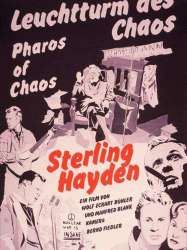
Pharos of Chaos (1983)
, 1h59Genres Documentary
Themes Films about writers, Films about television, Documentary films about business, Documentary films about the film industry, Documentaire sur une personnalité
Actors Sterling Hayden, Burkhard Driest, Hanns Zischler, Charles Brauer
Roles Self - Actor
Rating70%





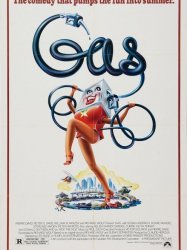
Gas (1981)
, 1h34Origin Canada
Genres Comedy
Actors Philip Akin, Susan Anspach, Peter Aykroyd, Michael Hogan, Keith Knight, Howie Mandel
Roles Duke Stuyvesant
Rating33%





A small Midwestern town is thrown into chaos when the local oil tycoon (Sterling Hayden) orchestrates a phony oil shortage in order to increase profits. A news reporter (Susan Anspach) tries to uncover the plot, and a radio DJ in a helicopter (Donald Sutherland) reports on the craziness caused by the gasoline shortage.
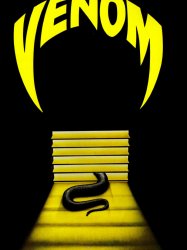
Venom (1981)
, 1h33Directed by Tobe Hooper, Piers Haggard
Origin United-kingdom
Genres Thriller, Horror
Themes Films about animals, Films about children, Films about snakes
Actors Klaus Kinski, Oliver Reed, Nicol Williamson, Sarah Miles, Sterling Hayden, Susan George
Roles Howard Anderson
Rating57%





An international criminal enlists Ruth Hopkins' maid and chauffeur in a scheme to kidnap her asthmatic ten-year-old son Philip for ransom. As the plot begins to unfold, Philip has just brought home a snake from a local importer, unaware that his new pet has been accidentally switched with a deadly black mamba destined for a toxicology lab. The lab reports the mix-up, and a police officer is dispatched to the Hopkins residence, only to be shot by the panicking chauffeur. The London townhouse is surrounded by police, trapping the criminals, the child, and his grandfather inside with the mamba, which is now loose in the ventilation system.
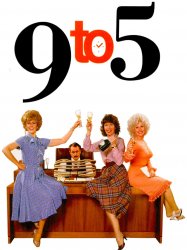
Nine to Five (1980)
, 1h50Directed by Colin Higgins
Origin USA
Genres Comedy
Themes Feminist films, Political films, Buddy films, Children's films
Actors Jane Fonda, Lily Tomlin, Dolly Parton, Dabney Coleman, Marian Mercer, Colin Higgins
Roles Russell Tinsworthy
Rating68%





Judy Bernly (Jane Fonda) is forced to find work after her husband, Dick (Lawrence Pressman), runs off with his secretary. Judy finds employment as a secretary at Consolidated Companies. The senior office supervisor, Violet Newstead (Lily Tomlin), introduces Judy to the company and staff, including Mail Room Clerk Eddie , Alcoholic Margaret Foster and the sleazy Franklin Hart, Jr. (Dabney Coleman), and Roz Keith (Elizabeth Wilson), Hart's executive assistant. Violet reveals to Judy that Hart is supposedly involved with his buxom secretary, Doralee Rhodes (Dolly Parton). Hart exploits and mistreats his female subordinates, with backstabbing and sexist remarks. He cruelly yells at and threatens Judy on her first day after an equipment malfunction and sexually harasses Doralee, spreading rumors about an affair that never happened.
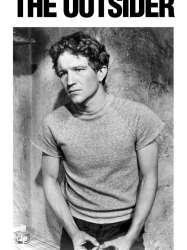
The Outsider (1980)
, 2h8Genres Drama, Historical
Themes Films about terrorism, Political films
Actors Craig Wasson, Sterling Hayden, T.P. McKenna, Patricia Quinn, Niall Tóibín, Gabriel Byrne
Roles Seamus Flaherty
Rating68%





Un vétéran du Vietnam en colère quitte Detroit pour Belfast et rejoint l'IRA contre les Anglais, comme l'avait fait son grand-père.
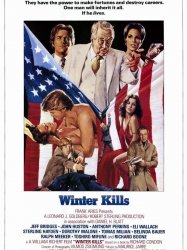
Winter Kills (1979)
, 1h37Directed by William Richert
Origin USA
Genres Drama, Thriller, Comedy-drama
Themes Political films
Actors Jeff Bridges, John Huston, Anthony Perkins, Eli Wallach, Sterling Hayden, Dorothy Malone
Roles Z.K. Dawson
Rating61%





Nick Kegan (Bridges) is the son of world-famous tycoon Pa Kegan (Huston) and the younger half-brother of the late President Timothy Kegan, who was slain by a lone sniper 19 years earlier. When an ex-convict named Arthur Fletcher (Joe Spinell) makes a deathbed confession to Nick, claiming that he was the second of two riflemen who shot the president and was sub-contracted by an unknown agency, Nick sets off on a quest to discover the truth about his late brother's murder.
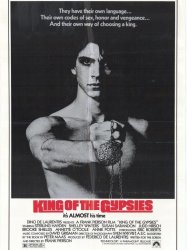
King of the Gypsies (1978)
, 1h52Directed by Frank Pierson
Origin USA
Genres Drama
Actors Eric Roberts, Sterling Hayden, Shelley Winters, Susan Sarandon, Brooke Shields, Annette O'Toole
Roles King Zharko Stepanowicz
Rating61%





The film deals with the criminal ways and violent lives of a group of modern-day Gypsies based in New York City. Whilst on his deathbed their "king", Zharko Stepanowicz (Sterling Hayden), passes his position of leadership on to his unwilling grandson, Dave (Eric Roberts). In spite of Dave's reluctance to become the Gypsies' new leader, Dave's father, Groffo (Judd Hirsch), is sufficiently insecure and resentful over not winning the title himself that he attempts to have his own son killed. This leads to a major confrontation, and the film ends with the implication that Dave may finally accept his legacy with his voiceover musings about somehow bringing the rest of the tradition-bound Gypsies forward in time into the world of 20th Century customs and lifestyles.
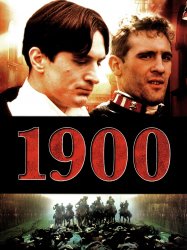
1900 (1976)
, 5h20Directed by Bernardo Bertolucci
Origin Italie
Genres Drama, Historical, Romance
Themes Politique, Films about sexuality, Films about the labor movement, Political films, Children's films
Actors Robert De Niro, Gérard Depardieu, Dominique Sanda, Donald Sutherland, Alida Valli, Burt Lancaster
Roles Leo Dalcò
Rating76%





Born on the day of the death of renowned composer Giuseppe Verdi—27 January 1901—Alfredo Berlinghieri and Olmo Dalcò come from opposite ends of the social spectrum. Alfredo is from a family of landowners led by his populist grandfather (also called Alfredo), while Olmo is an illegitimate peasant. Olmo's grandfather, Leo, is the foreman and peasants' strong man who verbally and spiritually carries out a duel of wits with grandfather Alfredo. As Alfredo is somewhat rebellious and despises the falseness of his family, in particular his weak but abusive and cynical father Giovanni, he befriends Olmo, who was raised as a socialist.
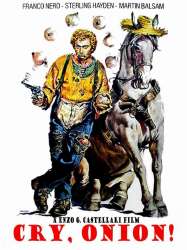
Cry, Onion! (1975)
, 1h31Directed by Enzo G. Castellari
Origin Italie
Genres Comedy, Western
Actors Franco Nero, Martin Balsam, Sterling Hayden, Leo Anchóriz, Romano Puppo, Helmut Brasch
Roles Henry 'Jack' Pullitzer
Rating54%





Onion, un gentil aventurier arrive dans la ville de Paradise City. Il a acheté un terrain à un certain Foster, mystérieusement mort dans un accident, afin d'y planter des oignons. Onion découvre que Foster a été tué par les sbires de Petrus Lamb, propriétaire de la Oil Company, une compagnie pétrolière prête à tout pour obtenir les terres nécessaires à l'extraction du pétrole brut.

Deadly Strangers (1975)
, 1h28Directed by Sidney Hayers
Origin United-kingdom
Genres Thriller
Actors Hayley Mills, Simon Ward, Sterling Hayden, Peter Jeffrey
Roles Malcolm Robarts
Rating63%





A lunatic is on the loose as a salesman, Steven Slade (Simon Ward) picks up a young lady, Belle Adams, (Hayley Mills) in a blue Austin Maxi car after she is nearly raped by a lorry driver.
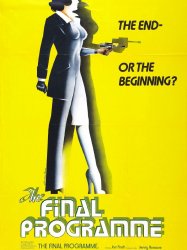
The Final Programme (1973)
, 1h29Directed by Robert Fuest
Origin United-kingdom
Genres Science fiction, Thriller, Comedy, Fantasy, Comic science fiction
Themes Films about computing, Films about sexuality, LGBT-related films, Transgender in film, Films based on science fiction novels, Comedy science fiction films, Political films, Dystopian films, LGBT-related films, LGBT-related film
Actors Jon Finch, Jenny Runacre, Hugh Griffith, Sterling Hayden, Patrick Magee, Julie Ege
Roles Maj. Wrongway Lindbergh
Rating54%





L'aventurier prix Nobel Jerry Cornelius (Finch) s'oppose à son frère Frank (O'Connor), qui a enlevé sa sœur Catherine (Douglas). Tous deux meurent tandis que Jerry se retrouve mêlé aux plans de Miss Brunner (Runacre) visant à créer l'homme parfait en fusionnant leurs deux corps...
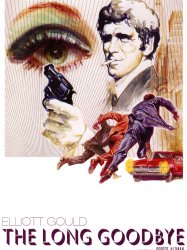
The Long Goodbye (1973)
, 1h52Directed by Robert Altman
Origin USA
Genres Drama, Thriller, Comedy, Noir, Crime
Actors Elliott Gould, Nina, Baroness van Pallandt, Sterling Hayden, Mark Rydell, Henry Gibson, Warren Berlinger
Roles Roger Wade
Rating74%





Late one night, with nothing better to do than feed his fussy cat, private investigator Philip Marlowe is visited by his close friend Terry Lennox, who asks for a lift from Los Angeles to the California–Mexico border at Tijuana. Marlowe obliges. On returning home, Marlowe is met by two police detectives, who accuse Lennox of having murdered his rich wife, Sylvia. Marlowe refuses to give them any information, so they arrest him. After three days in jail, the police release him, because Lennox committed suicide in Mexico. It is an open-and-shut case to the police and the press, but the official facts do not sit right with Marlowe.
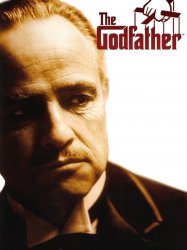
The Godfather (1972)
, 2h55Directed by Francis Ford Coppola, Tommy Wiseau
Origin USA
Genres Drama, Mob film, Crime
Themes Films about alcoholism, Films about immigration, Mafia films, Seafaring films, Transport films, La précarité, Gangster films, Films about marriage
Actors Marlon Brando, Megan Fox, Al Pacino, James Caan, Richard S. Castellano, Robert Duvall
Roles Captain McCluskey
Rating87%





On the occasion of his daughter Connie's wedding, Vito Corleone hears requests in his role as the Godfather, the Don of a New York crime family. Vito's youngest son, Michael, wearing a Marine Corps uniform, introduces his girlfriend, Kay Adams, to his family at the reception. Johnny Fontane, a famous singer and godson to Vito, seeks his help in securing a movie role; Vito dispatches his consigliere, Tom Hagen, to Los Angeles to talk the abrasive studio head, Jack Woltz, into giving Johnny the part. Woltz is unmoved until he wakes up in bed with the severed head of his prized stallion.
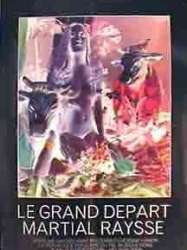
The Big Departure (1972)
, 1h11Directed by Martial Raysse
Genres Drama, Fantasy
Actors Sterling Hayden, Anne Wiazemsky, Lucienne Hamon, Jackie Raynal
Roles M. Nature / The Leader
Rating60%






Angel's Leap (1971)
, 1h40Directed by Yves Boisset, Claude Othnin-Girard
Origin France
Genres Crime
Actors Jean Yanne, Sterling Hayden, Raymond Pellegrin, Senta Berger, Gordon Mitchell, Daniel Ivernel
Roles Mason / Custer
Rating57%





La violence fait rage à Marseille. En pleine campagne électorale, deux clans s'affrontent : d'un côté, les Corses, dirigés par la famille Orsini; de l'autre, le jeune génération de gangsters, soutenant la candidature de Forestier. Ce dernier, afin de s'assurer la victoire, ne recule devant rien et fait assassiner les frères Orsini. Leur père, Louis Orsini, expatrié en Asie, apprend la nouvelle et décide de rentrer au pays afin d'obtenir sa vengeance...
 Connection
Connection

